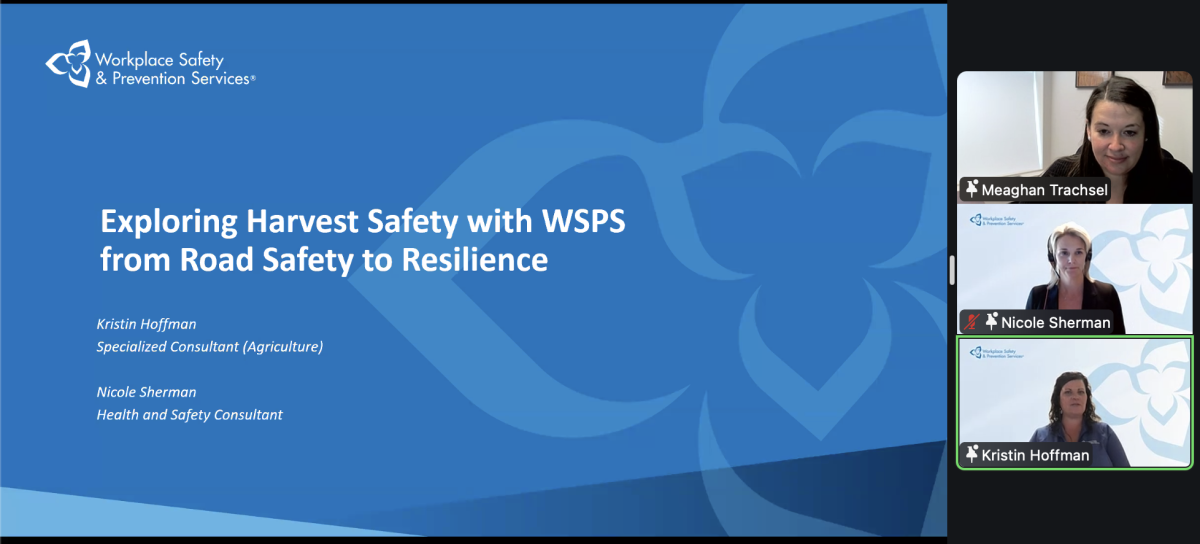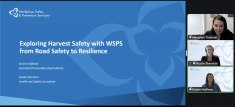In their zeal to be environmentally sustainable, food production systems should concentrate less on their carbon footprint and more on production and distribution, says a new study.
Improving the way food is grown, harvested, transported and consumed provides greater environmental benefits than simply counting food miles, according to the three-year global study published this week.
Although the study involves only salmon, its findings can apply to any other food commodity, its authors say.
The study, conducted jointly by Halifax’s Dalhousie University, the Swedish Institute for Food and Biotechnology and the Oregon-based institute Ecotrust, examines various aspects of salmon production: wild versus farmed, organic versus conventional, local versus imported.
Read Also

Exploring Harvest Safety
Kristin Hoffman of WSPS explains measures for increased farm safety around harvest season
Its conclusion? So-called sustainable food production isn’t always all that sustainable.
What salmon are fed, how they are caught, how they are transported and how they are eaten have more environmental and socioeconomic impacts than food miles, organic or locally-grown. In other words: mode matters more than miles.
Adopting simple production changes offers the greatest environmental benefits, say the authors of the study published online in Environmental Science and Technology.
“For example, fish shouldn’t fly. They should swim. Container ships are by far the most efficient way to transport food, followed by rail systems,” the authors say.
In other words, buying imported frozen fish can have less environmental impact than buying fresh, organic or local, the study claims.
Most salmon fillets are consumed fresh, not frozen. The authors argue that switching to 75 per cent frozen salmon in Japan, which gets most of its fish by air, would have more environmental benefits than all of Europe eating locally farmed salmon.
Some environmentalists argue that eating locally grown food is more sustainable than importing it over long distances. But the study’s authors call that approach too simplistic.
“Overall, it is clear than single metrics such as food miles are too simple,” they write. “Decision-making for food must become more sensitive to the needs of feeding an entire world. We must learn to fully account for the socioeconomic and environmental costs of food production.”
The salmon analogy can apply to other agri-food commodities, according to Peter Tyedmers, an ecological economist at Dalhousie’s School of Resource and Environmental Studies and a co-author of the study.
“We’re making a lot of poor assumptions around why we purchase local,” Tyedmers was quoted in Toronto’s Globe and Mail as saying. “If we want to prioritize local economies, that’s a great thing. But let’s understand that it comes at a cost.”
However, Tyedmers stressed he isn’t against the local food movement.
“There’s a lot of good reasons we shouldn’t be ashamed of saying we value local food,” he said. “There are really good cultural reasons to value local.”














